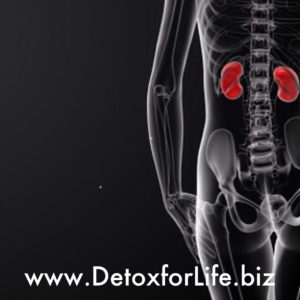Your Kidneys and You
What You Should Know!
Your kidneys aren’t very big—each is about the size of your fist—but they do important work. They keep you healthy by maintaining just the right balance of water and other substances inside your body.
Unfortunately, if your kidneys start to malfunction, you might not realize it for a long while. Kidney disease usually doesn’t make you feel sick until the problem becomes serious and irreversible.
Your kidneys are 2 reddish, bean-shaped organs located on either side of your spine in the middle of your back. Their main job is to filter your blood. Each kidney contains about a million tiny filters that can process around 40 gallons of fluid every day—about enough to fill a house’s hot water heater. When blood passes through the kidney, the filters sift and hold onto the substances your body might need, such as certain nutrients and much of the water. Harmful wastes and extra water and nutrients are routed to the nearby bladder and flushed away as urine.
Your kidneys also produce several hormones. These hormones help to control your blood pressure, make red blood cells and activate vitamin D, which keeps your bones strong.
We all lose a little of our kidney function as we get older. People can even survive with just one kidney if they donate the other to a friend or family member.
But when kidney function drops because of an underlying kidney disease, it’s something to be concerned about. Toxins and extra water can build up in your blood. Falling hormone production can cause other problems. About 1 in 10 adults nationwide, or about 20 million people, have at least some signs of kidney damage.
There are different types of kidney disease. Most strike both kidneys at the same time, harming the tiny filters—called nephrons—and reducing their filtering ability. When damage to nephrons happens quickly, often because of injury or poisoning, it’s known as acute kidney injury. It’s more common, though, for nephrons to worsen slowly and silently for years or even decades. This is known as chronic kidney disease.
You can take many steps to avoid or delay reaching the point of kidney failure. Share on XThe best thing you can do is control your blood pressure. A healthy lifestyle, including physical activity and a heart-healthy diet, can help to normalize blood pressure and also slow kidney disease.
Diets high in sodium and protein add stress to the kidneys, making them work harder. There are foods that promote healthy kidneys, as with anything, moderation and maintenance is key to staying healthy. Many berries are beneficial for the kidneys, such as cranberries, blueberries, and strawberriesCabbage, cauliflower, and apples are also beneficial foods that promote healthy kidneys.
source: Florida Weekly
A regular cleanse is also recommended, to help the kidneys take a break and to catch back up, we offer supplements as well as a tea to help cleanse the kidneys.
To support your cleanse visit our products page: www.detoxforlife.biz/products-page/
For more information
or to schedule a customized and individual appointment
at our upscale and private Scottsdale salon,
contact us at (480) 949-6570 or visit www.DetoxforLife.biz.

